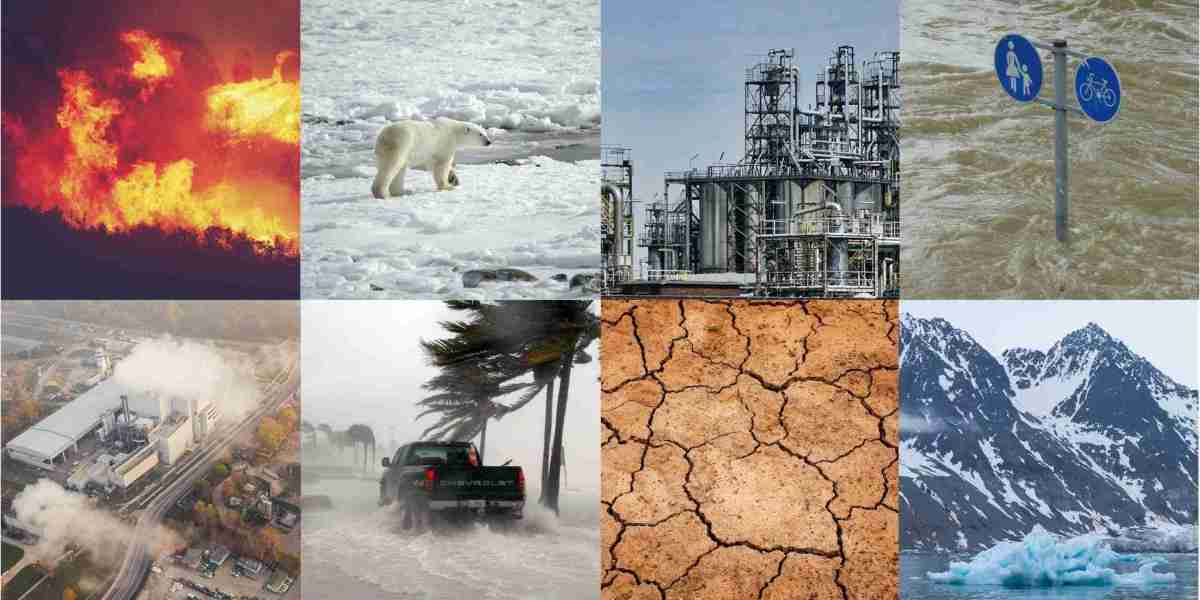.
Climate change is an incontrovertible reality that looms large over our planet. It is conventionally defined as long-standing variations in temperature and ordinary weather patterns. As it is established, many anthropogenic factors significantly accelerate climate change, and the roles played by major industries are both remarkably dynamic and tremendously multifaceted.
Industrial activities, in particular, have been heavily implicated in the ballooning issue of climate change. The burning of fossil fuels in power plants, transportation, and factories is an absolute mainstay of our modern economy. However, commonly, this burning releases greenhouse gases into the atmosphere, which trap heat and raise global temperatures - an effect that has been visibly precipitous over the last few decades.
The agriculture industry also adds generously to the greenhouse gas emissions recipe. Farming, usually in the pursuit of meat and dairy products, results in considerable quantities of methane, a gas with a much more potent heat-trapping ability than carbon dioxide. In many cases, this is combined with deforestation, a practice that depletes the earth's capacity to absorb carbon dioxide in forests and provides another significant boost to global warming.
In a similar vein, manufacturing industries emit vast amounts of carbon dioxide along with other dangerous pollutants. This is primarily due to their heavy reliance on fossil fuels for energy, but it can also be traced back to the generally inefficient processes used to manufacture goods.
Reforms within these sectors, aimed at battling climate change, are therefore urgently required. The first step is usually about changing the way they consume energy. Switching to renewable and clean energy sources such as solar, wind, and hydroelectric power would greatly reduce the amount of carbon dioxide released into the atmosphere. Industrial processes themselves should also be scrutinized and engineered for greater efficiency, thus reducing power usage and overall emissions.
In the agricultural sector, changes that improve farming efficiency and reduce the requirement for deforestation can make a paramount difference. A shift towards a more plant-based diet would alleviate some of the pressure on these industries, resulting in less methane production and land use.
However, the onus of combating climate change does not solely rest upon these industries. Government regulation is an instrumental strategy. The introduction of carbon pricing or “cap-and-trade” systems can factor the cost of environmental degradation into industrial costs. In turn, this approach serves as a deterrent for pollution and an incentive for cleaner operations.
Moving on, it’s imperative for industries to invest more in innovation and technology that can make operations greener. With advancements in technology, there are now environmentally-friendly processes for manufacturing that cause less pollution and are more energy-efficient.
Industries also need to implement sustainable waste management strategies. Rather than dumping industrial waste, industries should seek to recycle and reprocess waste materials to reduce environmental impact. This initiative will require a paradigm shift in business operations, looking at waste as a resource rather than a by-product.
Finally, educating employees and stakeholders about the impacts of climate change and the importance of sustainability is crucial. People at all levels need to understand why these changes are necessary and how they can contribute to the greater cause.
Although these initiatives may initially be viewed as an added expense, it is absolutely worth considering that climate-responsive policies can confer an array of long-term benefits. Companies that prioritize sustainability typically demonstrate a better reputation and increased market share. Kindly remember, that an environmentally responsible company not only makes a pleasing difference to the planet but also improves customer relations, attracting a growing faction of consumers who prefer ecologically friendly products and services.
Indeed, climate change is a global challenge that no country, sector, or business can ignore. Everyone has a role in curbing it. By implementing the changes as discussed above, major industries can help tackle climate change. The sooner the industrial sector recognizes this, the quicker we can progress towards preserving our planet.
Sincerely, industries must play a pivotal role as the world seeks to halt climate change. It may be a daunting task, but it is also a colossal opportunity to innovate, improve efficiency, and carry forward a sustainable, green industrial revolution.







